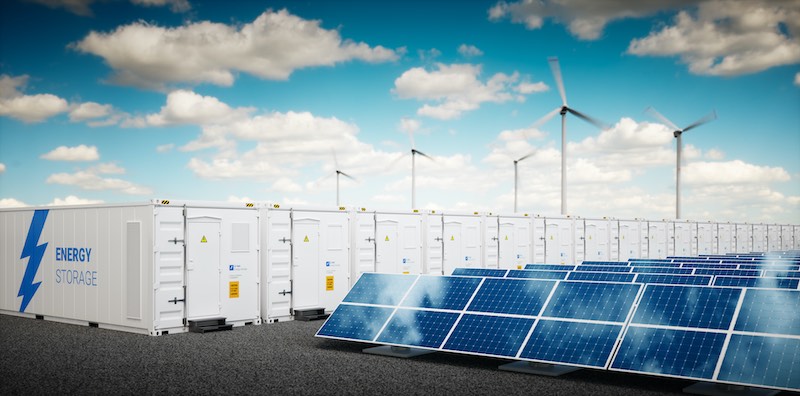16GW of Battery Storage in Development Pipeline

The UK has more than 700 battery storage projects operational, under construction or being planned, as the technology emerges as a crucial component of a zero-carbon energy system.
Trade body RenewableUK’s latest Energy Storage Project Intelligent report, published last week, counts 729 battery storage projects in the UK, for a total capacity of 16.1GW.
Currently, 1.1GW of storage capacity is operational in the UK, up from 0.7GW in December 2019. An additional 0.6GW is under construction, 8.3GW has already won planning consent and 1.6GW is progressing through the planning system. The report also identifies 4.5GW of projects in the early stage of development, expected to be submitted for planning consent in the coming years.
In comparison, in 2012 the total capacity of battery storage projects in the development pipeline was 2MW, or 0.002GW. Current and prospective capacity has grown a staggering 804,900% over the last nine years.
Battery storage increases the usability of intermittent renewable resources, allowing the country to run off power generated from wind and solar farms even on still, cloudy days. It’s therefore an essential enabler of the decarbonisation of the energy system and the UK’s net-zero goal.
Consultancy Atkins has estimated that the UK needs between 15 and 30GW of battery storage by 2050 to reach net zero.
Battery storage projects have benefited from a shakeup in planning laws to permit larger capacities. Until July, planning legislation had capped storage projects to 50MW in England and 350MW in Wales.
The change has allowed ambitious new projects—like the £200 million, 320MW lithium-ion battery planned at a port and logistics centre on the Thames Estuary—to win consent.
Beyond batteries, other technologies are being used or explored as energy storage, including liquefied and compressed air, pumped hydro, flywheels and gravity-based projects. The report finds an additional 6GW of energy storage from these technologies either operational, under construction or being planned.
Barnaby Wharton, director of future electricity systems at RenewableUK, said: “There’s no doubt that the energy storage market will continue to grow as we scale up using a variety of innovative technologies—not just lithium batteries but also flywheels, compressed air, liquid air and gravity-based storage. This cutting-edge technology is another example of how the UK is a world leader in building modern power systems.
“However, many of our projects need access to capital at a lower cost and more stable revenues. We’re hoping that the forthcoming update to the Smart System and Flexibility Plan will set out how the Government envisages making revenue streams for storage projects clearer. We also need a stable network charging regime and a long-term vision for the sector to encourage further investment by cutting-edge companies.”
The global outlook for battery storage projects is somewhat gloomier. While plans to build a 1,200MW battery at a coal mining hub in Australia, three times the current largest battery, have drawn headlines in recent days, investment in energy storage has been dampened by the pandemic. Money funnelled into energy storage sector worldwide fell in the first half of 2020 for the first time in a decade, according to the International Energy Agency. The Agency has raised the alarm that the uptake of energy storage is currently too slow for the world to meet the decarbonisation targets set out in the Paris Agreement.
Read on our blog

With the government poised to implement tough new measures to...

Budget broadband provider TalkTalk has been notifying customers via email...

A year-long investigation by charity Citizens Advice has revealed a...

Education Secretary Nadhim Zahawi has announced a new commitment to...
